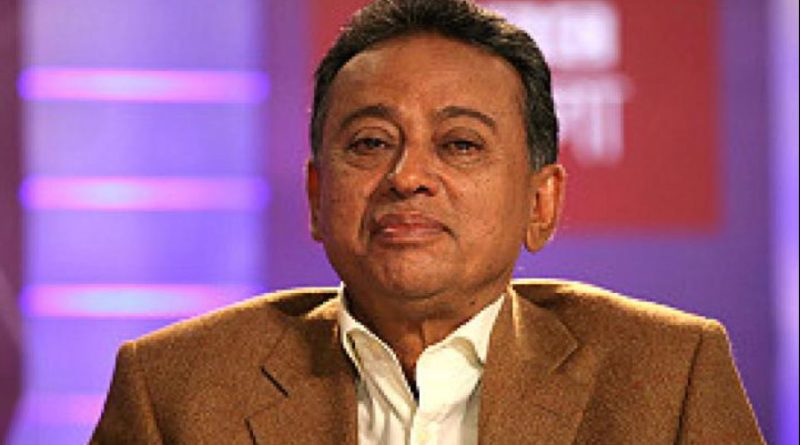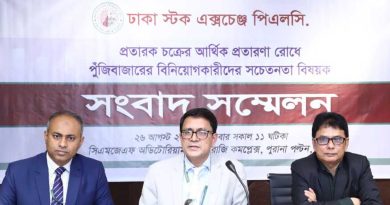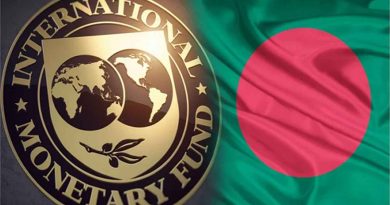Independent operations of Bangladesh Bank (BB) can heal many of the macroeconomic ills that have severely been hurting the economy, speakers at a roundtable discussion said in Tuesday.
In absence of the central bank’s independence, they said, the banking regulator often use as a political weapon in various occasions to execute political agendas.
Mentioning some recent controversial policy interventions, they said, regulator under the prescription of the political government in the last several years took some policies like lending rate cap, controlling exchange rate and continuous support to meet fiscal deficit through injecting high-powered money, which intensifies the inflationary burden here.
Considering macroeconomic sustainability in the coming years, the political parties should prioritise the matter and include it to their election manifestos in the upcoming general elections, they said.
The observations and demand came at a roundtable discussion titled “The Imperative for Central Bank Independence” orgainsed by The Policy Research Institute (PRI), with support from the UK International Development (UKID) at a city hotel on the day.
PRI vice chairman Dr. Sadiq Ahmed chaired the discussion where former commerce minister Amir Khasru Mahmud Chowdhury was present as the chief guest.
Speaking on the occasion, Mr. Chowdhury, also a standing committee member of Bangladesh Nationalist Party (BNP), said it should not be a wise approach to see BB’s independence as an isolate issue but it is very vital for the country’s macroeconomic sustainability.
“The economy will not function properly without ensuring the independence of Bangladesh Bank. This is not only my personal view but also the official position of my political party,” he said.
He said his party, when in power, never eroded central bank independence through political appointments. Bureaucrats, no matter how experienced they are, cannot substitute for specialized expertise in sectors like central banking.
He also emphasized that, “For the central bank to have real effectiveness, the Financial Institutions Division (FID) must be abolished without question.”
President of Bangladesh Leather goods and Footwear Manufacturers and Exporters Association of Bangladesh (LFMEAB) Syed Nasim Manzur said though the central bank is not directly regulating them, but they are indirectly affected and acted upon. So we can be a beneficiary or a victim.
Since 2019, the Metropolitan Chamber of Commerce and Industry have been arguing that the local currency is overvalued, the real effective exchange rate is not right.
“We didn’t make that correction, it came once, and in a year it devalued by 41 per cent. Now, we are seeing that the whole economy is suffering,” he said.
He said it’s not the central bank’s discretion to decide what should be the rate of inflation. Those are political discussions and those are set by the political leaders in power. However, once that target is laid down, the central bank is duty-bound to implement those terms. That is how central banks work in conjunction with political.
“So I’m going to end now with just a couple of concluding thoughts. The FID must go. I hope that this is one of the political agenda manifestos that you have,” the industrialist said drawing attention of the chief guest.
“We must put various actors in the BB board. There is a bureaucratic capture of the BB board that must be overthrown. Please free Bangladesh Bank from the clutches of the bureaucrats,” he said.
Executive director of Centre for Policy Dialogue (CPD) Dr. Fahmida Khatun said the central bank is observed to be used as a political weapon in various occasions in the past. Lending rate was capped for a certain period while exchange rate was not allowed to move under the direction of the political government.
Dr. Khatun outlined four reasons why an independent central bank is necessary. She noted, “The political government must take the initiative by passing an independence law and ensuring its proper implementation. The financial sector is the lifeline of the economy, and safeguarding its integrity is essential.”
Chairman of Policy Exchange Bangladesh Dr. M. Masrur Reaz remarked, “Bangladesh must have a clearly defined monetary policy role, with explicit legal provisions prohibiting direct government lending. Bangladesh Bank should determine its own budget.
“The X-factor here is political will. Without it, none of these reforms will work. Politicians must learn from past experiences,” he said.
President of Bangladesh Textile Mills Association Showkat Aziz Russell said the number of bank branches now seems to exceed that of grocery stores. These are mostly mushroom banks. Such over-licensing and excessive branching has driven up the cost of funds.
“Ironically, Bangladesh Bank appears to be the only profitable institution in the country,” he said.
Chairman of Bangladesh Association of Banks Abdul Hai Sarker said accountability alongside independence will be crucial task to address.
In closing remarks, PRI Chairman Dr. Zaidi Sattar said the country needs a central bank that will support macroeconomic stability and promote growth-friendly policies.
“Central Bank independence is ideal, but it doesn’t look easy to happen at once, as it is a very political decision,” he said.
He added that 40 per cent of the deficit is financed by the external sector, which is a positive thing. The rest of the deficit financing comes from public borrowing and borrowing from the banking sector. Borrowing from the Central Bank essentially means printing money, which fuels inflation, while borrowing from other banks crowds out funds for the private sector.
PRI vice chairman Dr. Sadiq Ahmed said that, “No wonder there is a short-term trade off between inflation targeting and growth as shown in the Philips curve. The government mostly focuses on the growth and employment. But an independent central bank will focus on inflation.
BB chief economist Dr. Mohammad Akhtar Hossain said Bangladesh Bank should be made autonomous or independent, but that autonomy should be within the government, and it could be just like a judiciary, and central bank in return will be accountable to the government, to the parliament, and if it is done, then the monetary policy could be much more effective, it would be able to achieve crisis stability.
Managing director and Chief Executive Officer of Mutual Trust Bank PLC Syed Mahbubur Rahman, among others, also spoke at the discussion.






